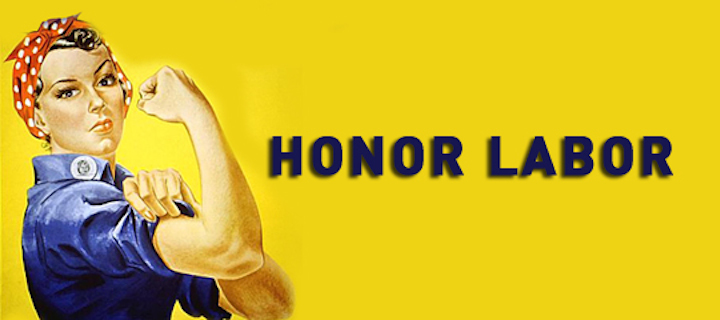I grew up believing the myth that poverty is out there, somewhere else in the world. I was taught that if you work hard enough, you can make it out of poverty in America. My father was a great example of the so-called “American Dream.” An immigrant who grew up in a thatched roof house in Korea, he came to America not knowing a single word of English. He studied hard, got into college, became a middle class banker and supported five children.
I still admire my dad, but I’ve learned that his story is the exception, not the rule. Through friendships with people like Mr. Jefferson, my eyes were opened to the systemic barriers the working poor face.
Mr. Jefferson was a 51-year-old African American man when I met him. He was the third shift security guard at a prominent building in downtown Columbus, Ohio. He lived in a small, dark, and crumbling house in a neighborhood plagued by unemployment, burnt out homes, poor schools and crime. His wife had passed away just months before, leaving him to care for his 12-year-old daughter alone. He had chronic health conditions that went untreated due to lack of insurance. Even though he was a reliable, hard worker and employed at the same building for nearly a decade, he struggled to make ends meet every week.
The stark contrast between Mr. Jefferson’s life and those who worked in the building he protected was glaring. It was a clear example of today’s economy being one defined by inequality and exclusion. Pope Francis said it best,
The hearts of many people are gripped by fear and desperation, even in the so-called rich countries. The joy of living frequently fades, lack of respect for others and violence are on the rise, and inequality is increasingly evident. It is a struggle to live and, often, to live with precious little dignity.
Just as the commandment “Thou shalt not kill” sets a clear limit in order to safeguard the value of human life, today we also have to say, “Thou shalt not” to an economy of exclusion and inequality. Such an economy kills. How can it be that it is not a news item when an elderly homeless person dies of exposure, but it is news when the stock market loses two points? This is a case of exclusion. Can we continue to stand by when food is thrown away while people are starving? This is a case of inequality.
We are all created in God’s image and should thus be afforded dignity of life, which includes dignity of work.
Jesus gives us a clear example of how economies ought to be structured in the Kingdom of God in Matthew 20:1-16. Jesus tells a parable of a vineyard owner who pays a denarius for a days labor. A denarius at the time was a living wage. The vineyard owner gives work opportunities to the long-term unemployed and generously pays a living wage, even to those who work for the last hour.
The vineyard owner does not pay some laborers less because their work did not require a college degree or was unskilled. The owner paid everyone a living wage because they were created in the image of God. The owner abided in the Kingdom of Heaven, which less concerned with bottom lines and shareholders than with what is righteous and good.
Unfortunately our modern economy, unlike the vineyard in Jesus’ parable, is built on the deification of capitalism and the worship of profit resulting in rapidly growing income inequality.
Mr. Jefferson, a faithful and generous man who never missed a tithe despite his meager paycheck, knew he was a child of God. He believed in the power of the resurrection and the kingdom of God here and now. He wanted to change his circumstances, he wanted dignity at work, and he wanted to organize a union at his job.
Collective bargaining remains one of the most effective tools for the working poor to step out of poverty. A union contract has the ability to secure respect, dignity, a living wage and benefits. It can also be an authentic witness of God’s love for the marginalized and oppressed. This is why we should celebrate Labor Day: to affirm the dignity of work and the rights of workers to form unions.
So on this Labor Day, let us pray for the working poor, the voiceless. Let us pray for the security officers, the janitors, the home health aides, the migrant farm workers, the garment workers, the cashiers. Let us pray that God’s Kingdom reality will shatter the idol of capital. Let us pray that all working people are given dignity. Let us pray that the business owners will follow Jesus’s example of the vineyard owner. Let us pray that we all learn to stand in solidarity with those fighting for dignity of work.
And let us praise God that people like Mr. Jefferson were able to form unions at their workplace!

